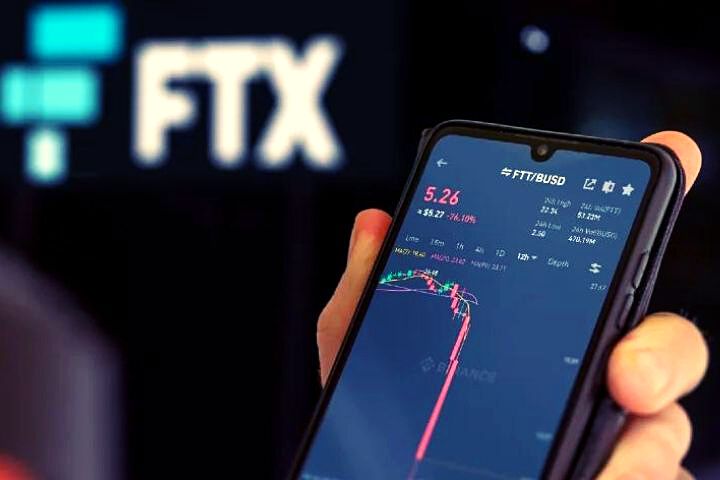What Real Estate Professionals Can Learn From The FTX Collapse

Considering the recent growth of real estate transactions financed with cryptocurrency, the November 2022 collapse of FTX was a revealing wake-up call.
Founded in 2019, FTX had grown to become the third-largest cryptocurrency exchange, contributing to the number of headlines announcing its closure and bankruptcy.
These headlines planted seeds of doubt across the board: from those who had made cryptocurrency their career, to consumers with a financial stake in crypto, to real estate professionals who were witnessing a growing number of crypto-financed property sales before the FTX collapse.
But most importantly, the collapse demonstrated how the possibility of another cryptocurrency catastrophe might affect both residential and commercial real estate, something that was rarely considered before November 2022.
Table of Contents
The Rise And Fall Of The FTX Exchange
During FTX’s four years in business, Sam Bankman-Fried, CEO of FTX, used proceeds from “sister company” Alameda Research (founded by Bankman-Fried in 2017) and FTX to purchase real estate.
During 2022, Bankman-Fried spent millions in FTX funds on property in the Bahamas, including luxury condominiums and land intended for commercial use. More properties were purchased within the United States, bringing the combined transactions to around 19 properties.
One notable Bahamas purchase was within the gated community Old Fort Bay, a historical area that was once home to a 1700s-vintage British fort. The documentation for the purchase described the property as a vacation home for Bankman-Fried’s parents.
Now that the defunct crypto exchange and its owners can no longer support these real estate purchases, what lessons can be learned?
Questions And Answers About Real Estate And Cryptocurrency
Q: How and why should real estate professionals tread lightly (or otherwise) when cryptocurrency is involved?
One strategy suggested for use when one or both parties are unfamiliar with bitcoin is to convert the cryptocurrency that will be used for the real estate purchase, usually bitcoin or Ethereum, into cash that can be used during the transaction.
This also eliminates the possibility of the cryptocurrency’s value falling before the sale closes, which could delay the closing or even cause the sale to fall through.
Real estate agents and brokers planning to transfer cryptocurrency to title insurance and escrow companies should ensure that all parties are willing to accept crypto.
Q: How might this affect the slow, up-and-coming use of blockchain and crypto to exchange property titles?
It’s vital to consider the cryptocurrency’s headline-making volatility during 2022, as this will certainly affect the decision-makers who are involved in property title transactions.
To be precise, a percentage will be willing to bypass the convenience of crypto in favor of traditional methods, assuming it is safer.
However, there are major advantages for the title insurance companies that adopt blockchain, a database that stores a digital record of cyber-transactions. Individual transactions, or “blocks,” are chained together within a list.
- One advantage is that blockchain is virtually unhackable. If a hacker alters any part of a block, the others would correct any transaction that doesn’t match subsequent transactions.
- Blockchain also supports “smart contracts”, a form of e-closing that is growing in popularity. Over half the counties in the U.S. have created e-recording platforms to accommodate them.
With a smart contract supported by blockchain, it will be possible to update ownership and transfer funds with just a few clicks. The closing process would be transformed.
Q: How should lenders treat loans designed to pay for properties that house crypto projects?
While blockchains will be required to keep track of individual loans, one of the biggest potential challenges for lenders offering crypto mortgages will be within the area of regulatory compliance.
Other concerns unique to mortgage crypto-transactions:
- Lenders may choose to safeguard their position from crypto volatility. One common method: requesting further collateral from the borrower if necessary.
- Deciding if the loan will be repaid with cash or cryptocurrency and what types of cryptocurrency will be accepted.
- Being aware of taxes and currency regulations that may apply to the transaction.
- If crypto assets are collateral during the loan’s term, all parties’ rights must be defined. For example, a lender may earn revenue from managing crypto deposits to earn revenue. This should be disclosed to the borrower.
Security methods for crypto assets should be in place. These would also respond to certain blockchain-related changes that may affect the collateral, such as token swaps or roll-backs.
Q: How might foreclosed properties, canceled commercial leases, and development projects affect the market as a whole?
Foreclosures, canceled leases, and canceled development projects are each handled differently, as each requires different funding methods.
- A foreclosure involves a closed, in-process residential mortgage. These are caused when the borrower, for any reason, does not make mortgage payments for a certain time. (Foreclosure timeframes vary by state.)
- A canceled lease involves violating the terms of the lease after it is signed by all parties.
- Canceled development projects may or may not have legal contracts in place, depending on their timeline.
While canceled leases and development projects may be funded with cryptocurrency, with the same outcomes as traditional funding in case of a failure, a foreclosure may be different. This is because residential properties are being purchased by crypto through a distributed autonomous organization, or DAO.
A DAO is a new legal structure that has no CEO or similar leader. Members of a DAO share common goals and can buy into ownership of a residential property during crowdsourcing, or new companies such as Lofty AI.
Foreclosure rescue possibilities for these properties are optimistic, as a new DAO investor can take over a former investor’s holdings at a low price, sometimes as little as $50. In addition, a new DAO may decide to locate and make an offer to the lender of an existing one instead of waiting for the borrower to attempt a “short sale.”
The cryptocurrency market is expected to see more involvement from the U.S. Securities and Exchange Commission (SEC) during 2023. While this may lessen cryptocurrency’s attraction to adventure investors, new regulations may also help prevent another crypto disaster.






